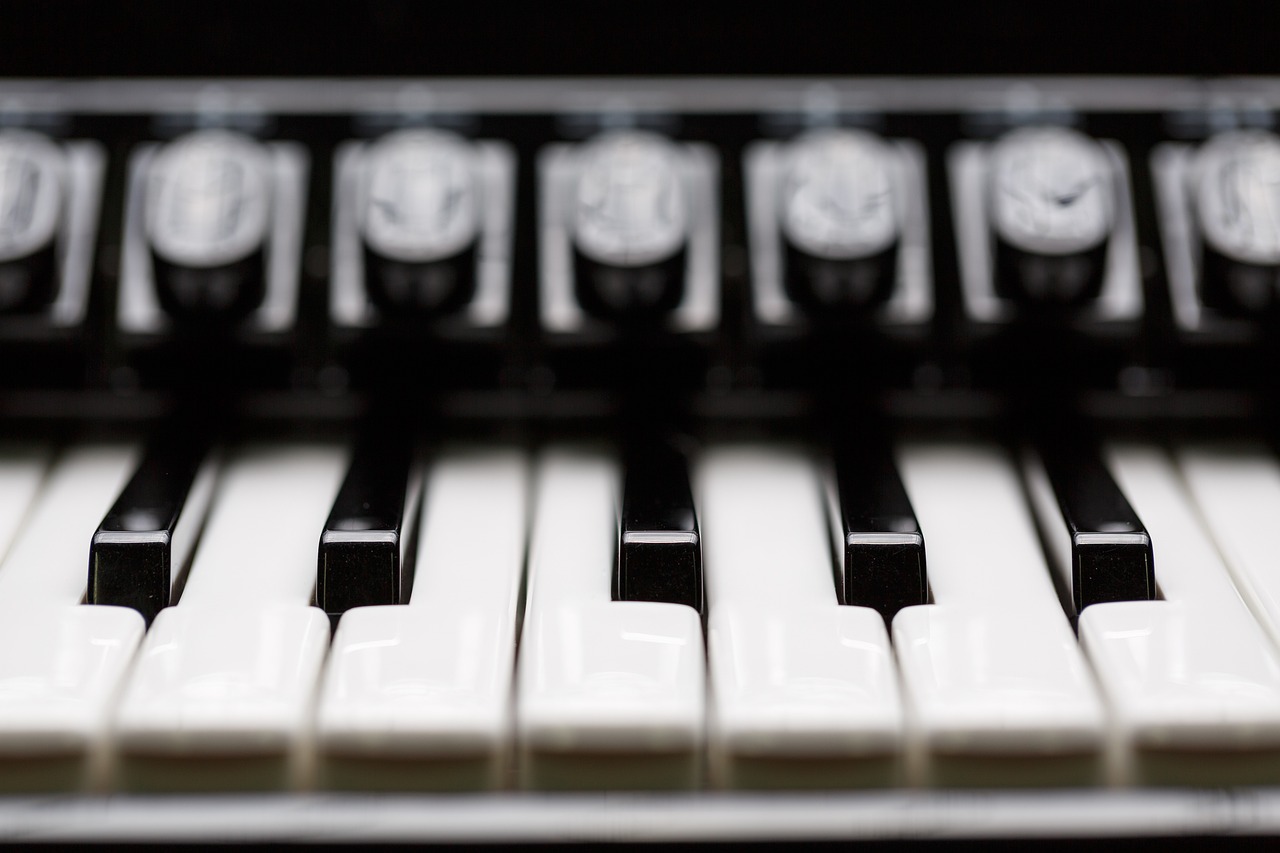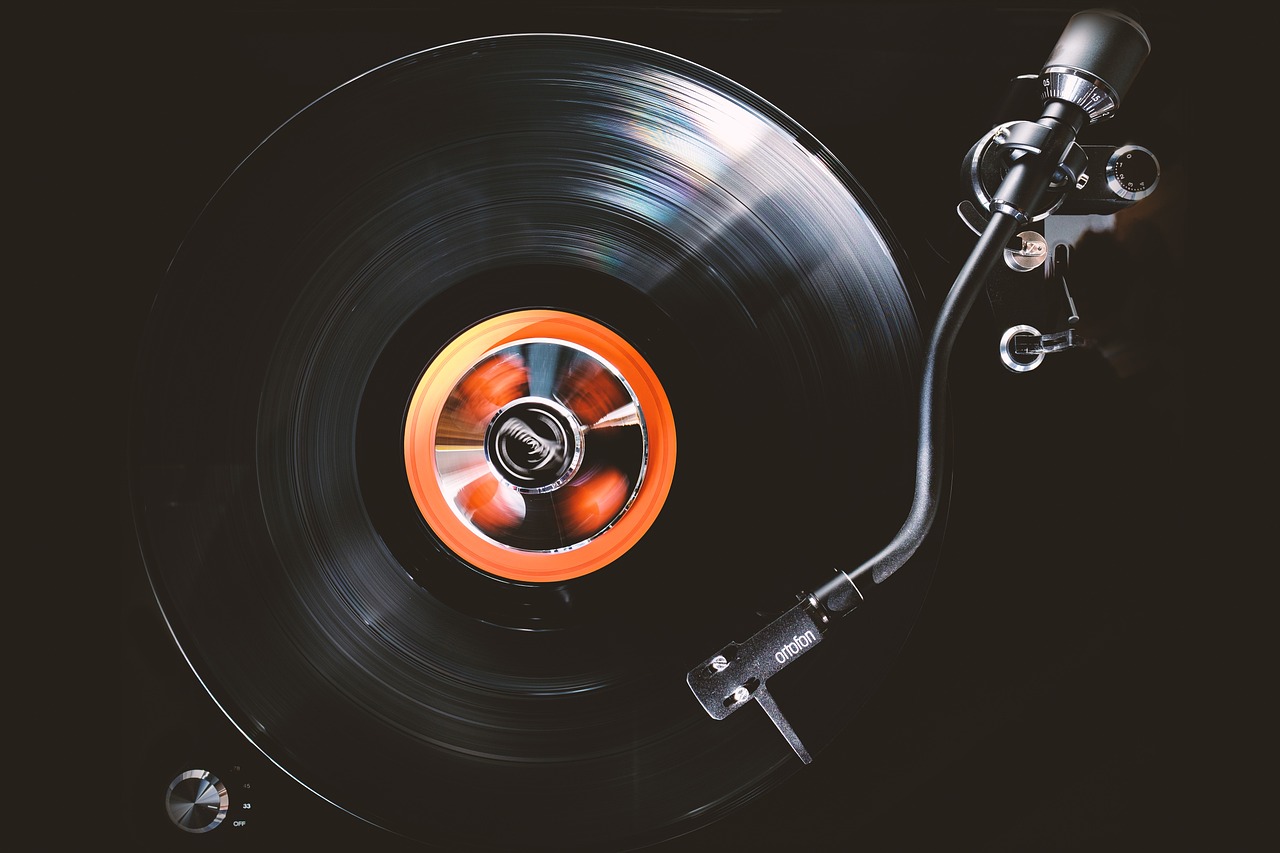In recent years, the world of music has seen an astonishing transformation, driven largely by the advent of artificial intelligence. This technology is not just a passing fad; it’s reshaping the very fabric of how music is created, produced, and consumed. Imagine a world where composers can collaborate with AI, producing melodies that were once thought to be the realm of human genius alone. This intersection of AI and music generation is not only fascinating but also raises profound questions about creativity, authorship, and the future of the music industry.
AI is now capable of analysing vast amounts of musical data, learning from it, and generating new compositions that can evoke emotions akin to those created by human artists. This capability is akin to having a musical partner that never tires, constantly providing fresh ideas and unique sounds. For example, platforms like OpenAI’s MuseNet or Google’s Magenta are pushing the boundaries of what AI can achieve in music creation. These systems can produce anything from classical symphonies to modern pop tracks, demonstrating the versatility and potential of AI in this domain.
However, this rise of AI in music generation is not without its challenges. It provokes critical discussions about copyright, ownership, and the essence of creativity itself. Who owns a song created by an AI? Is it the programmer, the user, or the AI itself? These questions are paramount as we move forward into an era where machines and humans coexist in the creative process. As we explore these dynamics, it’s essential to consider the ethical implications and ensure that the artistry of human musicians is celebrated and protected.
As we look ahead, the potential for AI in the music industry is boundless. It could lead to the emergence of entirely new genres, innovative styles, and even novel methods of music consumption. The collaboration between AI and musicians could redefine the listening experience, making it more interactive and personalised. Indeed, the future of music generation with AI is not just about technology; it’s about enhancing the human experience through creativity.
The Rise of AI in Music Production
This article explores the intersection of artificial intelligence and music creation, examining how AI technologies are transforming the music industry and influencing artists’ creative processes.
The integration of artificial intelligence into music production has been nothing short of revolutionary. In recent years, AI has emerged as a powerful tool, reshaping how artists compose, produce, and even perform music. Imagine having a digital assistant that can analyse your musical style, suggest chord progressions, or even generate entire tracks tailored to your preferences! This is no longer just a fantasy; it’s a reality that many musicians are embracing.
AI technologies such as machine learning and deep learning algorithms are enabling the creation of innovative sounds and arrangements that were previously unimaginable. For instance, AI can dissect vast amounts of data from existing music to identify patterns and trends, allowing artists to tap into popular styles while still maintaining their unique voice. This fusion of technology and creativity is akin to having a co-pilot in the studio—one that never gets tired and is always ready to brainstorm.
Moreover, the efficiency brought by AI tools means that musicians can focus more on the creative aspects of their work. With AI handling repetitive tasks like mixing and mastering, artists can dedicate more time to honing their craft and exploring new musical ideas. This shift not only enhances productivity but also opens the door for more experimental projects that push the boundaries of traditional music genres.
However, as we embrace this technological advancement, it’s crucial to consider the implications it brings. Will AI-generated music dilute the essence of human creativity? Or will it serve as a catalyst for an entirely new wave of artistic expression? The answers to these questions are still unfolding, but one thing is clear: the rise of AI in music production is just the beginning of a fascinating journey.
| AI Tool | Function | Impact on Production |
|---|---|---|
| Amper Music | Generates music tracks based on user input | Speeds up the composition process |
| AIVA | Composes original music | Challenges the notion of authorship |
| LANDR | Automates mastering | Enhances sound quality with minimal effort |
In conclusion, the rise of AI in music production not only enhances the creative process but also raises essential questions about the future of music itself. As we navigate this evolving landscape, it’s vital for artists, producers, and listeners to engage in an ongoing dialogue about the role of technology in shaping the sound of tomorrow. To explore more about AI in music, check out this resource.

AI Composers and Their Impact
This article explores the intersection of artificial intelligence and music creation, examining how AI technologies are transforming the music industry and influencing artists’ creative processes.
AI’s integration into music production has revolutionised the way artists create and produce music, offering new tools and techniques that enhance creativity and efficiency in the studio.
The emergence of AI composers has sparked debates about authorship and creativity, challenging traditional notions of what it means to create music and how AI can contribute to this art form. Imagine a world where a computer can compose a symphony or write lyrics that resonate with the human experience—it’s not just a dream anymore; it’s a reality!
These AI systems, like OpenAI’s MuseNet and Jukedeck, can analyse vast amounts of data, learning from countless musical styles and genres. This capability allows them to generate original compositions that often surprise even seasoned musicians. The impact of AI composers can be summarised in the following ways:
- Challenging Traditional Norms: AI raises questions about who can be considered a ‘composer.’ Is it the machine, the programmer, or the artist who uses the AI?
- Expanding Creative Horizons: Artists can now collaborate with AI, pushing the boundaries of their creativity and exploring new sounds.
- Accessibility: With AI tools, budding musicians can create high-quality music without needing extensive training or resources.
However, this innovation doesn’t come without its challenges. There are ethical considerations regarding copyright and ownership. For instance, if an AI generates a hit song, who owns the rights? These questions necessitate a deeper discussion about the future of music and the role of human creativity within it.
As we continue to explore the capabilities of AI in music composition, it’s essential to acknowledge the profound impact it has on the industry. The fusion of technology and artistry is not merely a trend; it’s a transformation that could redefine the very essence of music itself.
Numerous collaborations between AI systems and musicians illustrate the potential for innovative music creation, showcasing how technology can enhance human creativity rather than replace it.
The use of AI in music generation raises important ethical questions regarding copyright, ownership, and the role of human creativity, necessitating a deeper discussion about the future of music.
As AI continues to evolve, its influence on the music industry will likely expand, paving the way for new genres, styles, and methods of music consumption and creation.
Collaborative Projects Between AI and Musicians
This article explores the intersection of artificial intelligence and music creation, examining how AI technologies are transforming the music industry and influencing artists’ creative processes.
AI’s integration into music production has revolutionised the way artists create and produce music, offering new tools and techniques that enhance creativity and efficiency in the studio.
The emergence of AI composers has sparked debates about authorship and creativity, challenging traditional notions of what it means to create music and how AI can contribute to this art form.
Collaborative projects between AI and musicians are reshaping the landscape of music creation. Imagine a world where your favourite artist teams up with an advanced algorithm to craft a new sound. This fusion is not just a gimmick; it’s a profound shift in how music is produced. Artists like Holly Herndon have embraced AI as a collaborator, using it to generate new vocal techniques and soundscapes that push the boundaries of traditional music.
One notable example is the collaboration between the band YACHT and an AI system called Google’s Magenta. Together, they created an entire album, showcasing how technology can enhance human creativity rather than replace it. This partnership demonstrates that AI can serve as a tool to unlock new artistic possibilities, allowing musicians to explore uncharted territories in their work.
Moreover, the use of AI in music creation isn’t just about producing new tracks; it also sparks intriguing discussions about the nature of creativity itself. When AI generates melodies or lyrics, who owns the copyright? This question is at the forefront of many artists’ minds as they navigate this brave new world.
As these collaborations grow, they highlight the potential for AI to act as a creative partner rather than a mere assistant. The synergy between human intuition and machine learning could lead to the emergence of entirely new genres and styles of music, making the future of music creation an exciting frontier.
In summary, the collaborative projects between AI and musicians are not just a passing trend; they are paving the way for a new era in music. As artists continue to experiment with AI, we can expect to see even more innovative and groundbreaking works that challenge our understanding of music and creativity.
The use of AI in music generation raises important ethical questions regarding copyright, ownership, and the role of human creativity, necessitating a deeper discussion about the future of music.
As AI continues to evolve, its influence on the music industry will likely expand, paving the way for new genres, styles, and methods of music consumption and creation.

Ethical Considerations in AI Music Generation
The integration of artificial intelligence into music generation is not just a technological advancement; it also brings forth a myriad of ethical dilemmas that demand our attention. As AI systems become more sophisticated, questions surrounding copyright, ownership, and the essence of creativity arise. Who owns a song created by an AI? Is it the programmer, the user, or the AI itself? These questions are pivotal in understanding the future landscape of music.
Moreover, the debate extends to the role of human creativity in music. Some argue that AI can never replicate the emotional depth of human-created music, while others believe that AI can enhance and augment human creativity. This dichotomy raises another ethical concern: should we embrace AI as a collaborator or view it as a potential threat to traditional artistry?
To illustrate these ethical considerations, consider the following points:
- Copyright Issues: If an AI generates music, who holds the copyright? This ambiguity can lead to legal challenges.
- Job Displacement: As AI takes on roles traditionally held by human musicians, what happens to employment in the music industry?
- Authenticity: Can music created by AI ever be considered ‘real’ or ‘authentic’ in the same way that human-composed music is?
In a recent study, researchers found that while AI can generate music that mimics human styles, the emotional connection often remains absent. This highlights the need for a balanced approach that respects both human creativity and the potential of AI. As we navigate this complex landscape, it’s crucial to engage in open discussions about these ethical implications to shape a future where both AI and musicians can coexist harmoniously.
For a deeper understanding of these ethical considerations, check out this comprehensive analysis on the topic.
The Future of AI in the Music Industry
This article explores the intersection of artificial intelligence and music creation, examining how AI technologies are transforming the music industry and influencing artists’ creative processes.
AI’s integration into music production has revolutionised the way artists create and produce music, offering new tools and techniques that enhance creativity and efficiency in the studio.
The emergence of AI composers has sparked debates about authorship and creativity, challenging traditional notions of what it means to create music and how AI can contribute to this art form.
Numerous collaborations between AI systems and musicians illustrate the potential for innovative music creation, showcasing how technology can enhance human creativity rather than replace it.
The use of AI in music generation raises important ethical questions regarding copyright, ownership, and the role of human creativity, necessitating a deeper discussion about the future of music.
As we look ahead, the future of AI in the music industry is not just bright; it’s dazzling! Imagine a world where artificial intelligence not only assists musicians but also inspires them to explore uncharted territories of sound. The potential for innovation is enormous, and we are only scratching the surface. With AI’s ability to analyse vast amounts of data, it can help identify emerging trends and styles, allowing artists to stay ahead of the curve and adapt their music accordingly.
Moreover, AI-generated music could lead to the creation of entirely new genres that we can’t even fathom today. This evolution will challenge our understanding of creativity and authorship. For instance, consider how AI can analyse the emotional responses of listeners and tailor compositions that evoke specific feelings. This could redefine the way we experience music, making it more personal and impactful.
However, with great power comes great responsibility. The integration of AI in music will necessitate a robust discussion about copyright and the ownership of AI-generated works. Who owns a song created by an AI? Is it the programmer, the user, or the AI itself? These questions will be pivotal as we navigate this new landscape.
In summary, the future of AI in the music industry is poised to not only enhance creativity but also to provoke significant ethical discussions. As we embrace this technology, it is essential to balance innovation with responsibility, ensuring that the human touch in music remains irreplaceable.
Frequently Asked Questions
- How is AI changing music production?
AI is revolutionising music production by providing artists with innovative tools that enhance their creativity and streamline the production process. From generating melodies to mastering tracks, AI technologies enable musicians to explore new sonic landscapes that were previously unimaginable.
- Can AI create music that is considered art?
Absolutely! The emergence of AI composers has sparked discussions about the nature of creativity. While some argue that music created by AI lacks the emotional depth of human-made art, others believe that AI can contribute to the artistic process, offering fresh perspectives and ideas that challenge traditional definitions of music.
- Are there ethical concerns with AI-generated music?
Yes, there are several ethical considerations surrounding AI music generation. Issues like copyright, ownership, and the potential impact on human musicians raise important questions about the future of music. It’s crucial for the industry to address these concerns to ensure a fair and balanced approach to AI’s role in music.
- What does the future hold for AI in the music industry?
The future of AI in music looks promising, with the potential for new genres and styles emerging as technology evolves. As AI continues to advance, we can expect even more collaboration between human artists and AI systems, leading to exciting innovations in music creation and consumption.


